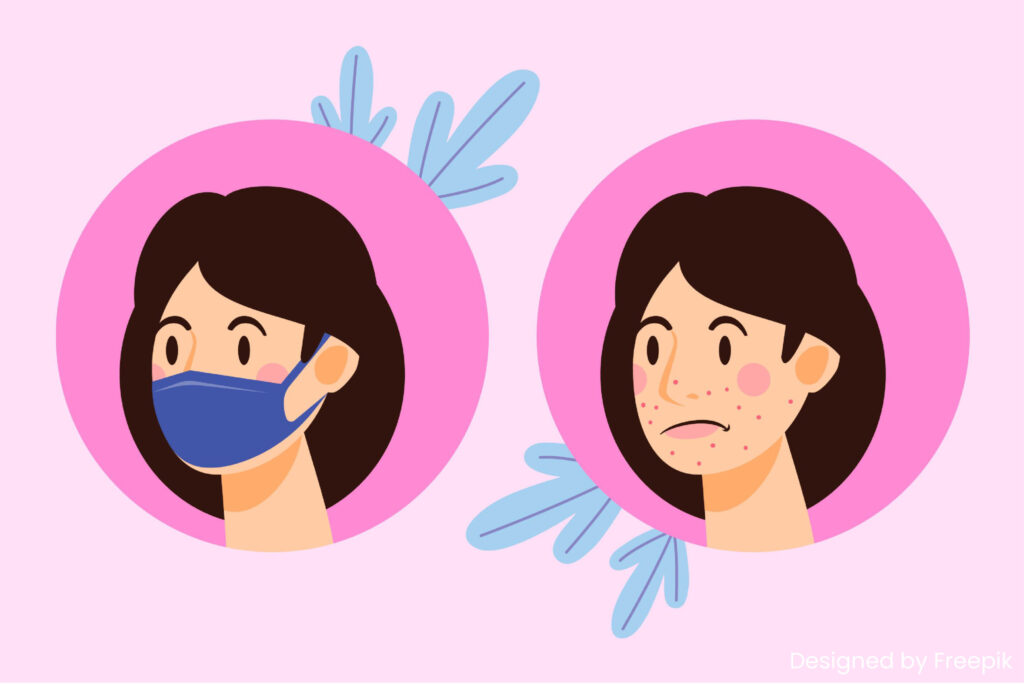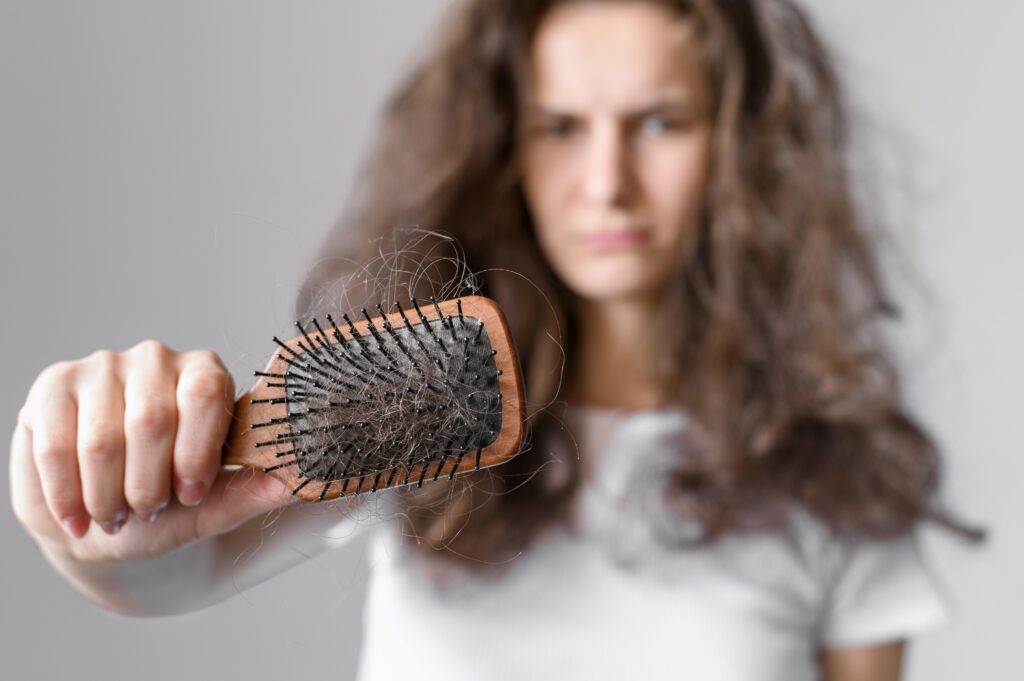Mask related problems

Have you heard of “Maskne?” During the current coronavirus pandemic, the best way to prevent the spread of the virus is by wearing a mask. Many of us have developed skin problems related to the prolonged use of masks – maskne and irritation.
Maskne is acne-like development in the areas that are covered by a mask. It can be due to the occlusive nature of the mask on our skin, resulting in clogged pores and subsequent inflamed acne lesions. Failure to clean masks regularly can also result in bacterial infection of the covered areas. Placing clean cotton lining under your mask can help to prevent occlusive acne formation and skin infection. Frequent washing of the face during the day may also help.
The masked area can become irritated, especially when the mask material is not smooth. The area can become red and damaged. Selecting masks with a soft material or placing a soft cotton lining will help to prevent irritation.
COVID-19 Hair Loss

Starting in July, there were an unusually large number of patients complaining of sudden onset of significant hair loss. Many were women. These patients stated that they had been infected with COVID-19 a few months earlier. They experienced fevers, chills, and several weeks of significant illness. Many exhibited symptoms using the pull test where 10+ strands would come off when a small bunch of hair is gently tugged on. Some noticed a significant reduction in their hair volume and were very worried.
Hair loss can be grouped into three types: genetically programmed hair loss with aging caused by issues related to hair follicles or tissue surrounding the hair and after a significant physical or psychological event. Many of these patients suffered from telogen effluvium. Their hair loss was were due to contracting the COVID-19 infection several months earlier.
When there is a sudden onset of hair loss, dermatologists check many different potential causes. Most of the telogen effluvium patients had a history of coronavirus infection. However, a few of them had more severe conditions that required immediate attention. One patient was diagnosed with new-onset lupus. Another just gave birth around March.
Telogen effluvium can be treated with PRP injection. Consult our staff to find out more about hair loss and its treatment.
